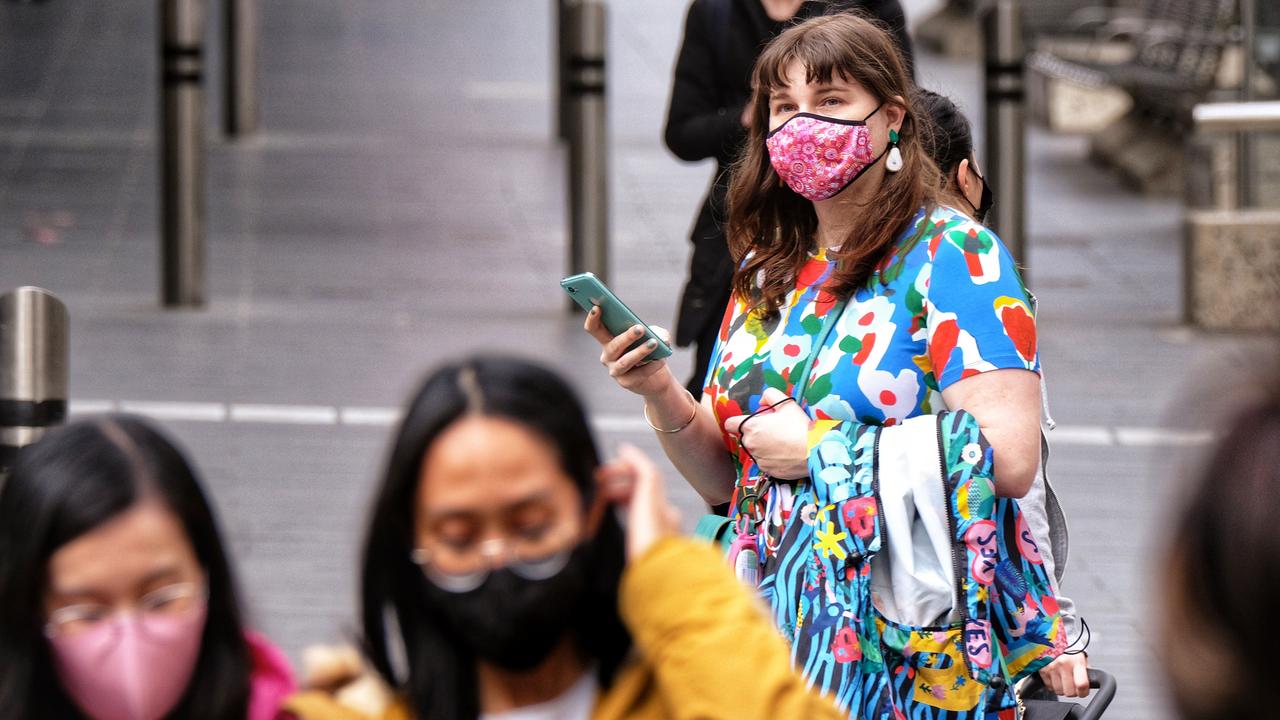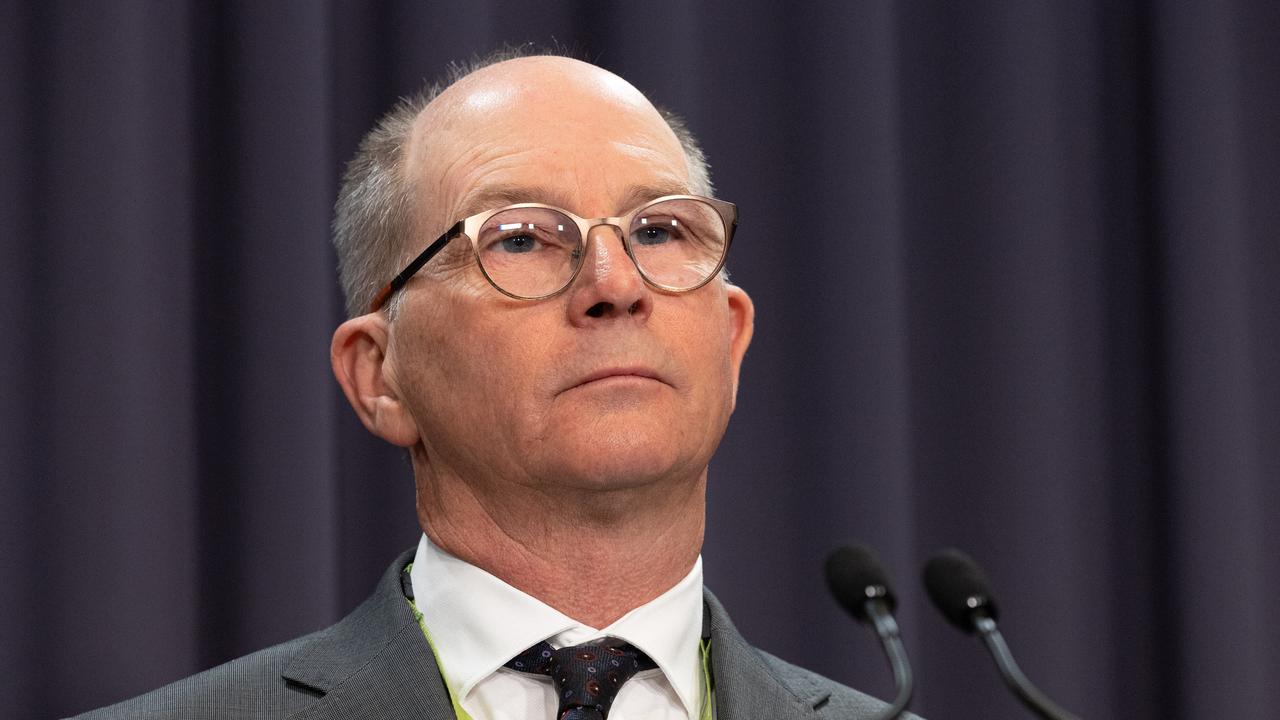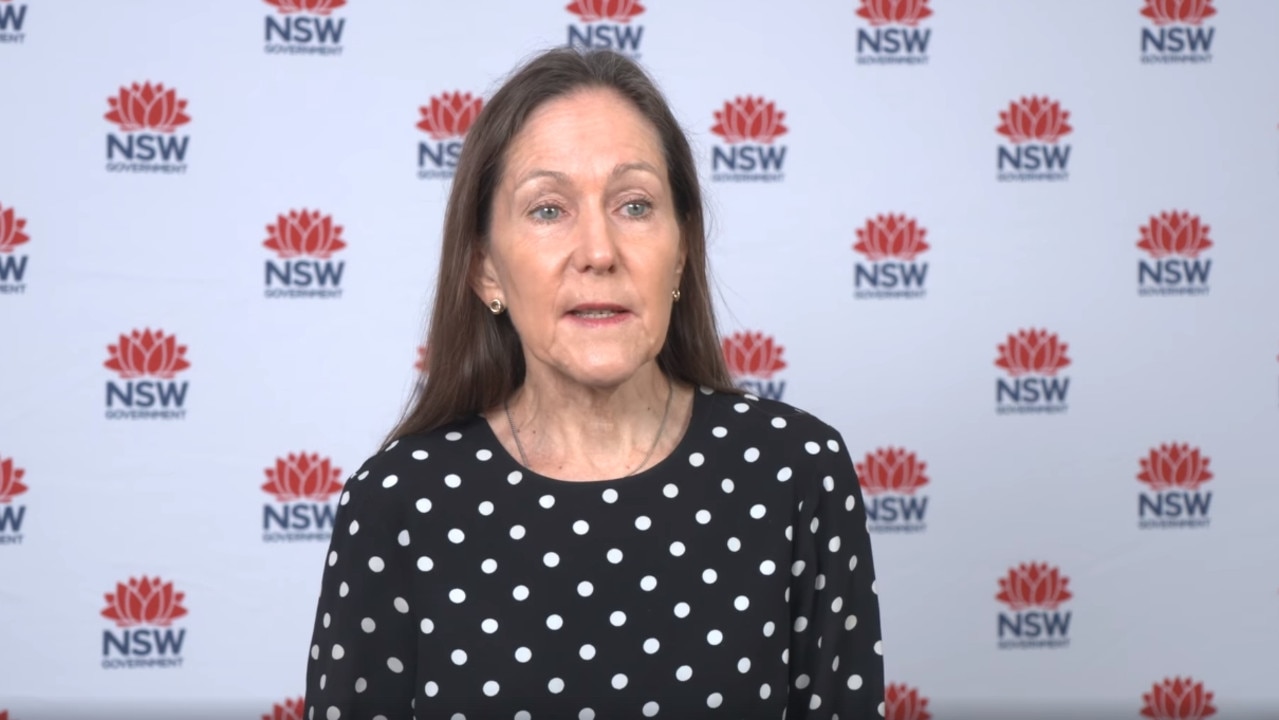Australians warned as experts tip eighth Covid wave over Christmas
Covid cases are on the rise again, with experts declaring an eighth wave is ahead and Australians warned to remain vigilant as new variants circulate.
Aussies are being warned to keep taking Covid seriously, as cases sparked by a multitude of variants rise across the country, with experts predicting an eighth wave of the virus ahead of summer.
New data shows there are a number of Covid strains floating around communities, including the current Omicron sub variants EG.5 (Eris) and BA 2.86 (Pirola).
Pirola was declared a “variant under monitoring” by the World Health Organisation on August 19 this year, due to its number of mutations.

It has been detected in 11 countries including Australia, the UK, the US, South Africa, Thailand, Japan, Switzerland and South Korea.
One case has been detected in Western Australia, genomic sequencing data shows.
The latest health warnings come as NSW Health confirmed cases had increased in the community and transmission was rife on Thursday.
“Please stay home if you have any cold or flu symptoms,” NSW Health posted on X, formerly Twitter.
“Staying home helps stop the spread of illness and protects others, including people who are at higher risk of severe illness.
There were 6,550 cases of COVID-19 were reported across Australia in the week ending on October 24, with an average of 936 cases per day.
NSW recorded the highest number of daily cases in the week ending on October 24, with 273 cases recorded, according to the country’s live Covid tracker.
Victoria closely followed with 201 cases recorded in the same week, while South Australia and Queensland recorded 153 cases and 133 cases respectively.
Meanwhile, there were less than 100 cases each recorded in Tasmania (61), ACT (51), West Australia (47), and the Northern Territory (17).
The federal health department will change its reporting of COVID-19 trends from weekly to monthly on November 10, with October 27 being the final weekly COVID-19 update.

Australia’s chief medical officer, Professor Paul Kelly, declared Covid-19 was no longer considered a Communicable Disease Incident of National Significance (CDINS) on October 20.
He said the new strategy would see the country taking a “business as usual” approach to managing the virus.
Professor Kelly said the declaration would not lead to any significant changes in the management of Covid-19, despite the increase in cases reported.
“A focus remains on vaccination, prevention, reducing transmission and management of serious illness, hospitalisations and death,” Prof Kelly said.
“Targeted surveillance and monitoring of Covid-19 will be maintained through well-established national and sentinel surveillance programs.
“Data and reports on Covid-19 will continue to be published and updated regularly.”
Prof Kelly said Australians were now shifting to the disease due to immunity built up by vaccinations and previous infections.
However, a Department of Health and Aged Care spokesman said the is currently insufficient evidence to suggest that BA. 2.86 is more severe than other variants.
“The potential impact of the BA. 2.86 mutations are presently unknown and are currently undergoing careful assessment by WHO,” he said.
“The Department of Health and Aged Care will continue to monitor both domestic and international epidemiological trends and SARS-CoV-2 reporting to ensure our public health response remains targeted and fit-for-purpose.
“Whilst COVID-19 is no longer a Communicable Disease Incident of National Significance, it still poses a significant health threat to vulnerable Australians, including older people and those with multiple comorbidities.”
The Health Department urged Australians to take routine steps to protect themselves and others in the lead up to the festive season.
Those steps include:
- Remaining up to date with their vaccinations;
- Practising good hygiene; and,
- For those who are ill:
- Staying home if possible
- Wearing masks where needed
- Avoiding high risk settings
- If eligible, accessing oral antiviral treatments early.
AMA President Professor Steve Robson also urged people to stay up to date with their vaccinations to prevent further spread throughout the community.
“Every wave of Covid-19 is a reminder that people need to get vaccinated and do everything they can to protect themselves and their loved ones, particularly those most vulnerable to getting really sick, like the aged and people whose immune systems are compromised,” Professor Robson said.

“Vaccination not only protects you and your family, it protects everyone in the community.
“Now is not the time for complacency and the AMA urges people to get up to date on their boosters, which is an extremely effective way to protect yourself and others.
“And of course, if you are unwell you should stay home.
“We need to try and avoid people getting sick enough that they need to go to hospital and put extra pressure on hospitals.
“The best way to do this is get your boosters, which reduces the risk of getting Covid and the severity of illness if people do contract it.”
According to the latest NSW Health data, Covid is currently circulating at moderate levels across the state but is likely on the rise in the coming months.
Continued monitoring of wastewater, emergency department presentations, and outbreaks in aged care facilities suggested the virus is more becoming more present.
NSW Health’s director of Communicable Diseases, Dr Christine Selvey, said modelling suggested a new wave of Covid will peak into December.

Dr Selvey recommended people showing symptoms should wear a mask.
It comes as the Victoria Health also issued a warning on October 26 that community transmission of Covid is increasing across the state.
“This is an expected part of the ongoing evolution of Covid in the community, as our immunity wanes with time,” the health department stated.
“These increases do not appear to be linked to a single new variant.”
Victorian residents are being urged to follow precautions in preventing the spread of the virus, including wearing a mask and staying up to date with vaccinations.
South Australia Health confirmed 6,017 people received a PCR test in the week ending on November 3, a 23 per cent increase on the previous week.
“SA Health encourages all eligible people to make sure they are up to date with COVID-19 vaccinations and have a plan with their GP to access antiviral treatments if they catch COVID-19,” the department stated.




